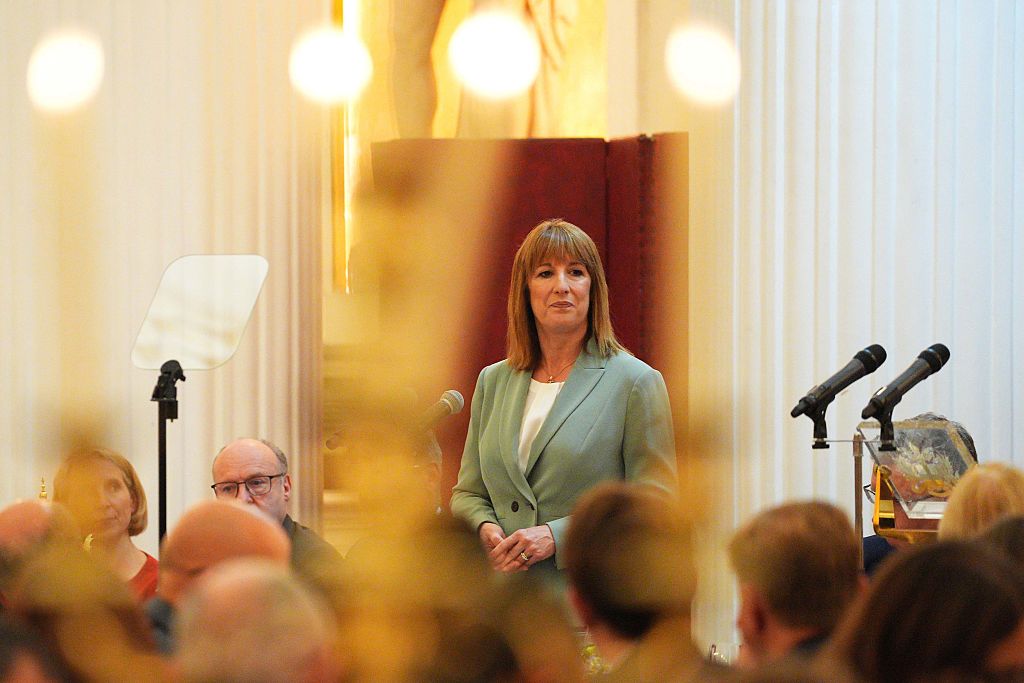Rachel Reeves wants Britain to become a shareholder democracy. In her annual Mansion House speech to the City’s bankers, accountants and financial advisors, she said ‘for too long, we have presented investment in too negative a light’. She’s right.
These changes are unlikely to unleash the ‘big bang’ of prosperity and tax revenues the Chancellor badly wants and badly needs
The Chancellor meant that regulation – which she called the ‘boot on the neck of business’ – has led to too many scary warnings about the risks of investing and not enough talking up of the benefits. She’s referring to the legally mandated ‘investment carries risk’ type messages you hear on any investment adverts – including on our own Coffee House Shots podcast.
Loosening these regulations, she said, could increase investing and lead to ‘a Britain that is better off’. She wants Brits to buy the dip and take advantage of our undervalued market as money looks to relocate from uncertainty from America.
These changes will, I’m sure, make our lives less annoying. Anyone who doesn’t know investments can go down as well as up should probably not be let loose on the markets. But they seem unlikely – on their own at least – to unleash the ‘big bang’ of prosperity and tax revenues the Chancellor badly wants and badly needs.
Her wider message was that ‘Britain is open for business’, and that we must ‘stay competitive in the global economy’. But critics would say it’s hard to claim to be open for business, whilst also having overseen a £25 billion national insurance tax raid that we now know is costing thousands of jobs.
What’s more, her reforms to the non-dom regime and the wealth taxes currently being floated have led to forecasts of some 16,500 millionaires fleeing the country this year: worse than anywhere else in the world.
To win those people and their taxes back, she needs to go further than cutting investment red tape – welcome as that will be to the financial industry. She needs to go further than her ‘Leeds reforms’ that aim to ‘rewire the financial system’. Her ‘concierge service’ that aims to make it easier for the rich to relocate to our shores won’t be enough.
Her problem came when she remade her ‘ironclad’ commitment to her ‘non-negotiable’ fiscal rules. For if she is to meet them, she now undoubtedly has to look at raising taxes. If she is serious about not taxing ‘working people’, then the only place she can look to squeeze further is business.
That’s likely to take the form of targeted increases to business rates for larger firms with some relief for the smaller ones. But on top of the tax rises she inflicted on business last autumn and on top of the costs her colleague Angela Rayner’s employments rights bill is likely to inflict, it’s hard to see how a few more of us taking a punt on the Post Office or piling money into BT will unlock the growth this chancellor so badly needs.







Comments